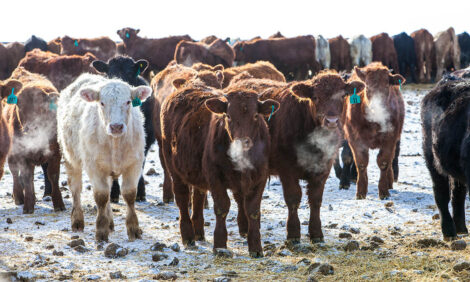



Japan Agrees to Further Open Market to US Beef
ANALYSIS – Japan and the United States have agreed on a new deal which should pave the way for expanded exports of US beef and beef products to Japan, writes Sarah Mikesell, TheCattleSite senior editor.US Trade Representative Ron Kirk and US Agriculture Secretary Tom Vilsack announced the terms and conditions which go into effect on February 1, 2013.
Under the new terms, Japan will now permit the import of beef from cattle less than 30 months of age, compared to the previous limit of 20 months. The only exception is ground beef, which will be phased in after a surveillance period to ensure that the new export protocol is proceeding smoothly.
This dramatically opens the market given that 95 per cent of the slaughtered US cattle would now be eligible for export.
Japan is currently the No. 2 market for US beef exports in terms of value and No. 3 in volume (143,900 metric tons or 317.2 million pounds) valued at $969.8 million through the first 11 months of 2012 – expected to top $1 billion in value for the year for the first time since 2003.
The US Meat Export Federation (USMEF) forecasts that US beef exports to Japan in 2013 as a result of expanded access to the market will increase roughly 45 per cent in volume and value, reaching 225,000 metric tons (496 million pounds) and $1.5 billion.
USDA estimates that the changes will result in hundreds of millions of dollars in exports of US beef to Japan in the future.
Many agree that this agreement also goes a long way toward normalizing trade with Japan by addressing long-standing restrictions that Japan introduced in response to bovine spongiform encephalopathy (BSE).
In December 2003, Japan banned US beef and beef products following the detection of a bovine spongiform encephalopathy (BSE)-positive animal in the US. In July 2006, Japan partially reopened its market to allow imports of some US beef from animals aged 20 months or younger produced under a special program for Japan.
In December 2011, Japan's independent Food Safety Commission (FSC) initiated a risk assessment to examine raising the maximum age of the cattle from which US and certain other foreign beef and beef products could be exported to Japan, as well as revising the definition of specified risk materials (SRMs). SRMs are certain cattle tissues that can carry the BSE agent.
Based on an FSC risk assessment released last October, Japan entered into consultations with the US to revise the import requirements, including raising the age limit for US cattle and adopting a revised definition of SRMs for US beef and beef product imports that is closely aligned with international standards of the World Organization for Animal Health (OIE).
“This is an extremely positive development that successfully addresses one of the longest standing issues between our two governments,” said Philip Seng, USMEF president and CEO. “The US beef industry – from farmers and ranchers to exporters – will benefit from increased exports to this premium market. At the same time, the trade and consumers in Japan will see a wider variety of beef products and improved availability of US beef in the retail and food service channels."
"This is great news for American ranchers and beef companies, who can now – as a result of this agreement – increase their exports of US beef to their largest market for beef in Asia," said Ambassador Kirk. "This represents a significant and historic step in expanding US beef trade with Japan and growing American exports and jobs here at home. We welcome Japan's action."
The two governments also agreed to regular and ad hoc consultations to review progress under the agreement and address any issues that may arise.



